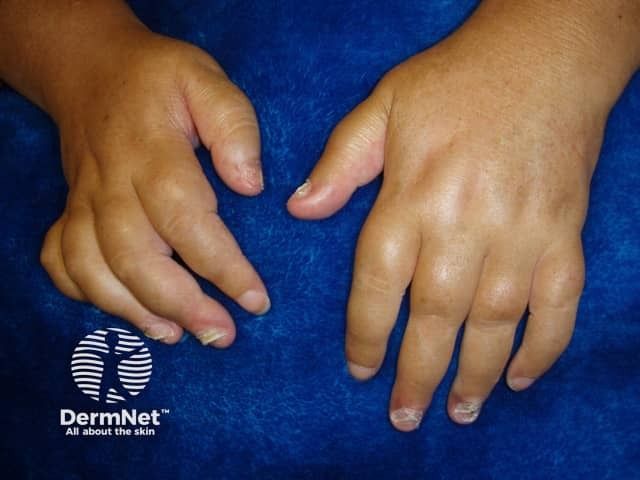- Case-Based Roundtable
- General Dermatology
- Eczema
- Chronic Hand Eczema
- Alopecia
- Aesthetics
- Vitiligo
- COVID-19
- Actinic Keratosis
- Precision Medicine and Biologics
- Rare Disease
- Wound Care
- Rosacea
- Psoriasis
- Psoriatic Arthritis
- Atopic Dermatitis
- Melasma
- NP and PA
- Skin Cancer
- Hidradenitis Suppurativa
- Drug Watch
- Pigmentary Disorders
- Acne
- Pediatric Dermatology
- Practice Management
- Prurigo Nodularis
- Buy-and-Bill
Article
Stress-blocker may restore hair
Researchers claim to have discovered - accidently - a potential hair-loss treatment, the online New York Times reports.
Los Angeles - Researchers claim to have discovered - accidently - a potential hair-loss treatment, the online New York Times reports.
The research team, from the University of California, Los Angeles, and the Veterans Administration, was conducting stress-hormone experiments on mice that typically develop head-to-tail baldness as a result of being genetically altered to overproduce a stress hormone. The experiments were designed to study a chemical compound called astressin-B to determine if it would block the effects of stress on the colon.
The scientists treated the bald mice with small doses of the compound for five days, then returned them to common cages with several non-bald mice. When the researchers returned to the cages to retrieve the mice for further study, the once-bald mice were fully furred. The team repeated the experiment several times and got the same results - bald mice grew new hair in a few weeks. The researchers also injected the compound into young mice before they went bald. Those mice never lost their fur, suggesting the compound may prevent age-related hair loss as well as spur hair growth.
The Times reports that research leader Million Mulugeta, D.V.M., Ph.D., co-director of UCLA’s preclinical stress biology program, said the compound appears to have affected the mice’s skin pigment as well as spurred hair growth. This could mean astressin-B has the potential to affect hair color.
“The evidence to show that hair loss is not a permanent loss is shown very strongly in this study, and that by itself is very important,’’ Dr. Mulugeta told the Times. “The antagonist really triggers a mechanism that covers a lot of biological phenomena, including hair growth and hair color. We certainly intend to continue the research.’’
The discovery was reported on by the online medical journal PLoS One.





